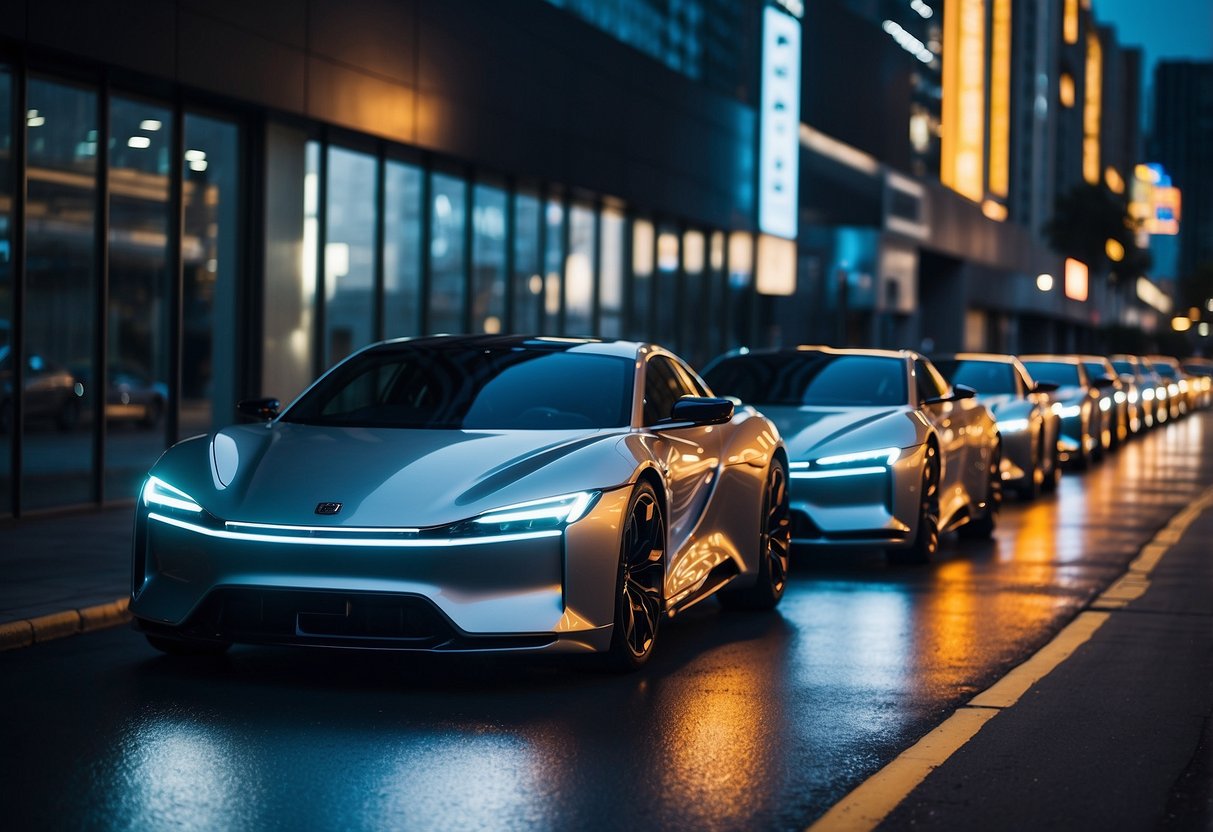
5. Model Five: The Innovator
Model Five sets itself apart with cutting-edge features and a predicted high resale value. This vehicle combines advanced technology with economic benefits, making it an attractive option for efficiency-minded buyers.
Advanced Technologies
Model Five incorporates the latest advancements in automotive engineering. It features an innovative hybrid powertrain that blends electric and conventional fuel systems seamlessly. This allows for remarkable fuel efficiency and lower emissions. The regenerative braking system captures energy usually lost during braking and feeds it back into the battery, extending the vehicle’s range.
The vehicle’s infotainment system is among the most sophisticated on the market, featuring a user-friendly interface with voice control and seamless smartphone integration. Additionally, advanced driver-assist systems include adaptive cruise control, lane-keeping assistance, and automatic emergency braking. These technologies enhance both safety and driving comfort, making Model Five a standout in its class.
Predicted Resale Value
Model Five’s resale value is expected to remain high, thanks to its durability and the strong reputation of its manufacturer. Anticipated low depreciation rates are attributed to the car’s quality build and modern features. Buyers can expect robust performance even after several years of ownership, which further increases its attractiveness in the used car market.
The combination of fuel efficiency and the latest tech features ensures long-term appeal. As a result, the car maintains strong demand among second-hand buyers, positioning it favorably for resale. This economic advantage adds to the overall value proposition of choosing Model Five.
Regulatory Standards and Environmental Considerations
Regulatory standards play a crucial role in shaping the fuel efficiency of cars. Governments around the world set fuel economy standards to reduce greenhouse gas emissions and combat climate change. In 2024, these regulations have become increasingly stringent, pushing manufacturers to innovate.
In the United States, the Corporate Average Fuel Economy (CAFE) standards require automakers to achieve a fleet-wide average fuel efficiency. These standards have seen incremental tightening, promoting the development of more fuel-efficient vehicles.
Europe follows the European Union’s CO2 emission targets. Automakers must meet specific CO2 limits, encouraging the adoption of hybrid and electric technologies. Failure to comply with these limits results in significant fines, driving further advancements in fuel efficiency.
China, the world’s largest automobile market, has implemented its own set of fuel efficiency standards known as the China VI standard. It combines fuel consumption limits with stringent emission regulations, encouraging carmakers to produce more environmentally friendly vehicles.
Environmental considerations also extend to other aspects such as manufacturing processes and materials used. Carmakers are now looking at sustainable materials and energy-efficient production methods. The focus is not only on what comes out of the exhaust pipe but also on the entire lifecycle of the vehicle.
Enhanced fuel efficiency and emission standards reflect a global effort to reduce the automotive industry’s environmental footprint. These initiatives have made fuel-efficient cars more attractive to consumers who are increasingly aware of their environmental impact.



